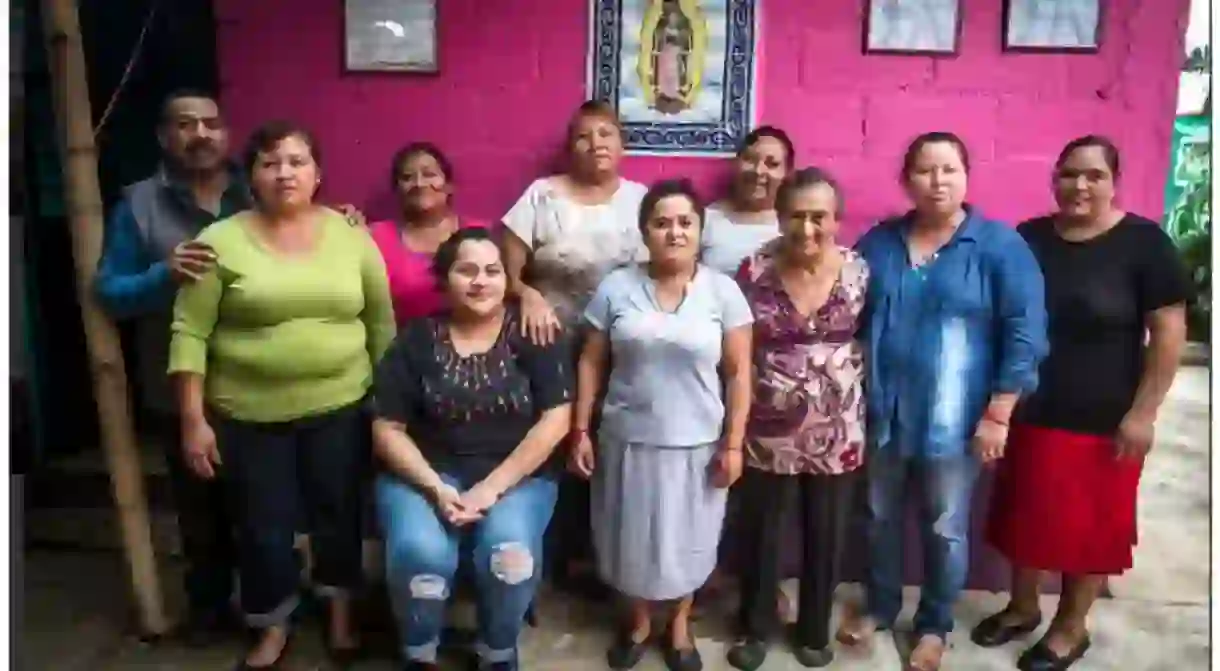Meet Las Patronas, The Mexican Women Feeding Migrants

In the small town of La Patrona, Veracruz a band of (predominantly) women known as Las Patronas are providing potentially life-saving ‘care packages’ to the Central American migrants that pass through the town on their journey to the northern border. Twice daily, they throw parcels containing food and water to those perched precariously atop the cargo train known colloquially as La Bestia (The Beast). Here’s everything you need to know about this inspiring group.
Over two decades ago, the nowadays award-winning charitable organization was born – entirely by chance. Norma Romero Vazquez and her sister were waiting for La Bestia to pass so they could cross the line and return home with their shopping. However, they went back empty handed that day after, in an instinctive act of human kindness, they threw their cartons of milk and loaves of bread to the migrants who’d called out to them to say they were hungry.

Early beginnings
When the girls returned home to their mother, rather than chastise them for having given away breakfast, she suggested they create 30 simple rations packs on a daily basis to give to the migrants literally risking life and limb for a chance to make it to the U.S. These parcels consisted of eight corn tortillas, beans and rice.
While the content of the packs hasn’t changed much over the past 20 years (they sometimes hand out fruits and biscuits with the help of donations), the quantity handed out most certainly has; to this day, the train continues to roll on through the town of La Patrona up to three times a day, but Las Patronas now hand out hundreds of parcels rather than just the 30 they began with.

International recognition
As well as growing in production, the amount of people who help in the efforts to feed these migrants has multiplied; in fact, Las Patronas now has close to 20 members, including the ‘founder’ Norma Romero Vazquez and her sister-in-law Guadalupe González, as well as hundreds of supporters around the world. Their efforts haven’t gone unnoticed either; they were awarded Mexico’s most prestigious human rights prize, the Premio Nacional de Derechos Humanos, in 2013.
They’ve also been the subject of numerous documentaries, including De nadie (2005) and Llévate mis amores (2014), the latter of which details their work, as well as Las Patronas’ difficult personal situations. Even so, despite their own hardships, they recognize the need to help those worse off than them.
Why is their work necessary?
While a few have complained about their efforts, including many of Las Patronas’ husbands, the importance of handing out food provisions to these desperate migrants passing through rural Veracruz should not be downplayed. Every year, close to half a million Central American migrants (predominantly from Guatemala, Honduras, El Salvador and Nicaragua) embark on the perilous journey through the east coast of Mexico to reach the U.S. border, and this number is only on the rise as situations deteriorate in their home countries. In order to do so, many will board La Bestia and ride it as far north as possible. However, this option is anything but the easy way out, as falling from atop the carriages can result in loss of limbs or life. Plus, migrants must negotiate the violent gangs that partially control the route, protecting themselves from robbery, rape, people and organ trafficking, as well as kidnapping.

Las Patronas may literally mean Patron Saints, but for the migrants who are helped on their journey by this inspirational band of women, we think they’re probably more akin to guardian angels.













